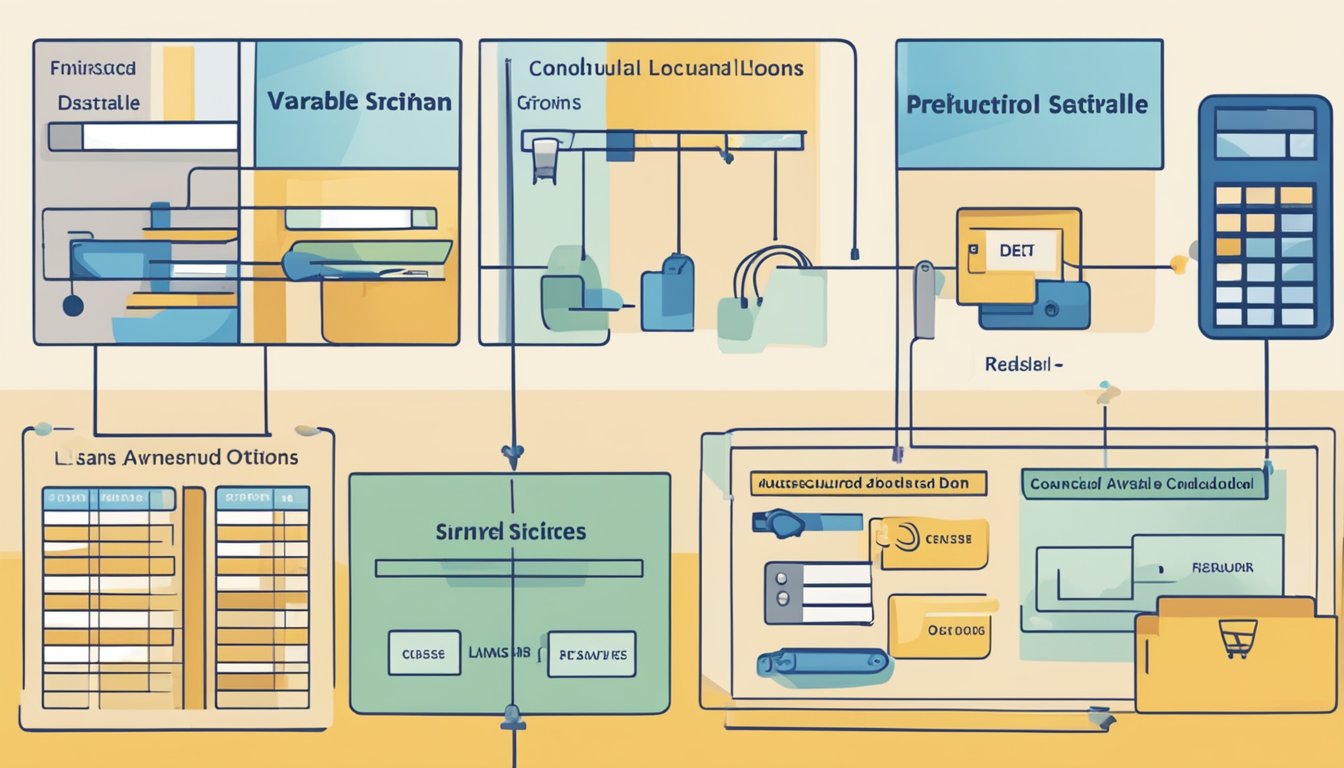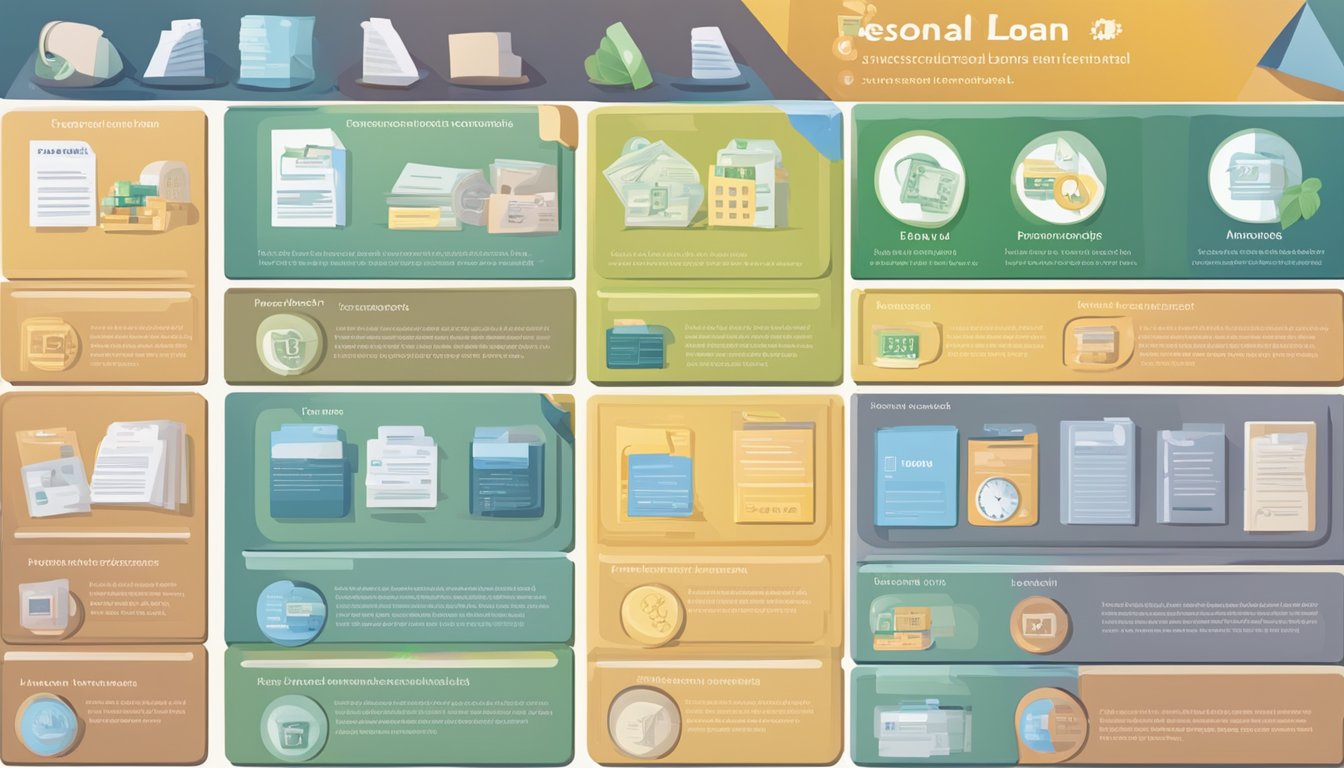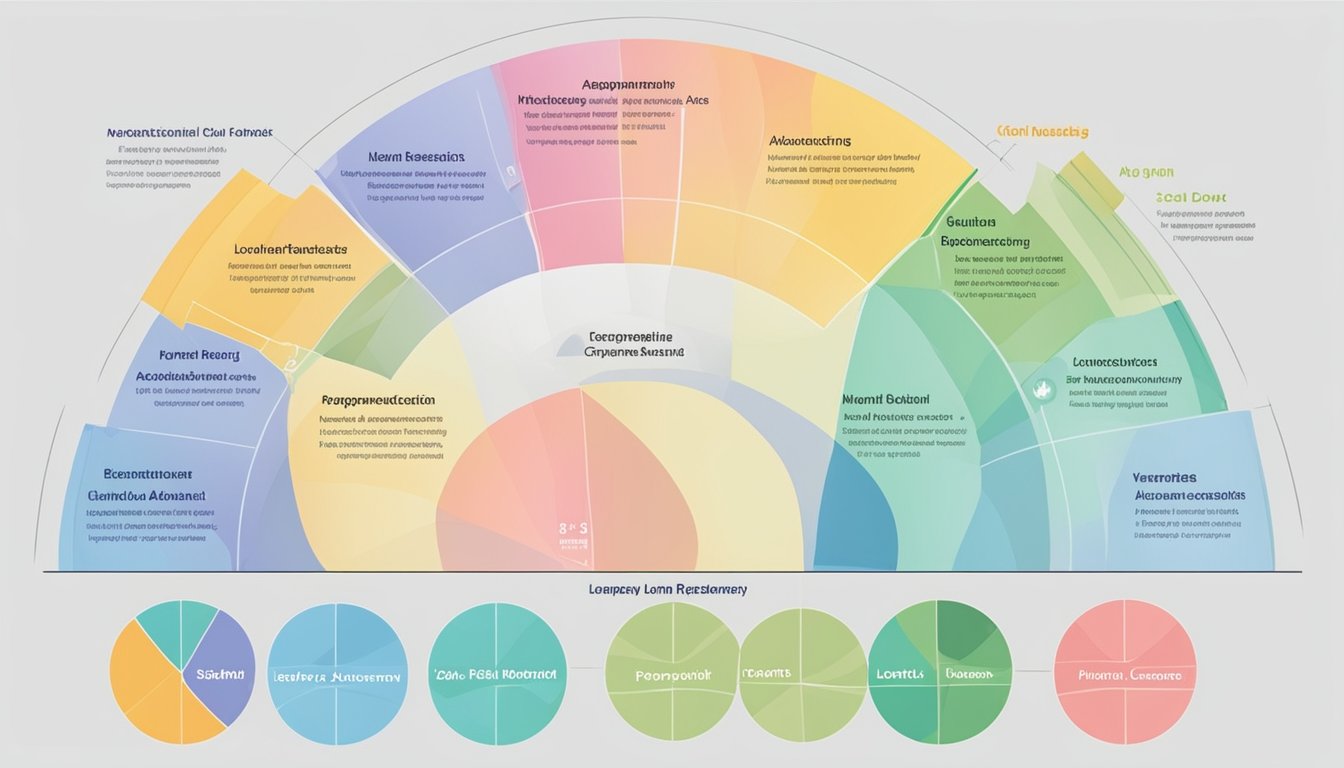Personal loans can be a great option for those who need to borrow money for various reasons, such as paying off debt, financing a large purchase, or funding a home renovation. But with so many different types of personal loans available, it can be overwhelming to decide which one is right for you.

The first step in choosing a personal loan is to understand the different categories available. The most common types of personal loans are secured and unsecured loans. Secured loans require collateral, such as a car or home, to secure the loan. Unsecured loans, on the other hand, do not require collateral and are based solely on your creditworthiness.
Another category of personal loans is the fixed-rate loan, which has a fixed interest rate for the life of the loan. This type of loan is ideal if you want predictable monthly payments and want to avoid any surprises. Variable-rate loans, on the other hand, have an interest rate that can fluctuate over time, which can be beneficial if interest rates are expected to decline.
Key Takeaways
- There are different categories of personal loans, including secured and unsecured loans, and fixed-rate and variable-rate loans.
- Understanding the different loan terms and repayment options is important when choosing a personal loan.
- Your credit score and financial history will play a significant role in determining your eligibility for a personal loan, as well as the interest rate you will be offered.
Types of Personal Loans

If you’re looking to borrow money, personal loans can be a great option. Personal loans are typically unsecured, meaning you don’t need to put up collateral like a car or house to secure the loan. Instead, lenders will look at your credit score and other factors to determine your eligibility and interest rate. Here are the three main types of personal loans:
Secured Personal Loans
Secured personal loans are loans that require collateral. This could be a savings account, certificate of deposit, or other asset that the lender can take if you don’t pay back the loan. Because the loan is secured, you may be able to get a lower interest rate than you would with an unsecured loan. Secured personal loans can be a good option if you have poor credit or need to borrow a large amount of money.
Unsecured Personal Loans
Unsecured personal loans are the most common type of personal loan. These loans don’t require collateral, but they do require a good credit score. Because lenders are taking on more risk with unsecured loans, interest rates are typically higher than with secured loans. Unsecured personal loans can be a good option if you need to borrow a smaller amount of money or have good credit.
Specialised Personal Loans
Specialised personal loans are loans that are designed for specific purposes. For example, you might take out a debt consolidation loan to combine multiple debts into one monthly payment. Or you might take out a home improvement loan to pay for a renovation. Specialised personal loans can be a good option if you have a specific need and can’t find a loan that fits your situation.
When looking for a personal loan, it’s important to shop around and compare rates from different lenders. Banks, online lenders, and credit unions all offer personal loans, so you can find the best deal for your needs. Keep in mind that your credit score will play a big role in determining your eligibility and interest rate, so it’s important to check your score before applying for a loan. With the right loan, you can get the money you need to cover expenses like weddings, home renovations, or other big purchases.
Understanding Loan Terms and Repayments

When it comes to personal loans, it is important to understand the terms and repayments associated with them. This will help you make an informed decision and avoid any surprises down the line.
Interest Rates and Fees
One of the most important things to consider when taking out a personal loan is the interest rate. This is the amount of money you will be charged for borrowing the funds. Personal loan interest rates can vary depending on factors such as your credit score, income, and the lender you choose.
In addition to interest rates, there may also be fees associated with your personal loan. These can include processing fees, late payment fees, and annual fees. Be sure to read the terms and conditions carefully to understand all of the fees associated with your loan.
Repayment Options
When it comes to repaying your personal loan, there are typically two options: fixed-rate loans and adjustable-rate loans. Fixed-rate loans have a set interest rate and monthly payment amount, whereas adjustable-rate loans have a variable interest rate that can change over time.
It is important to choose the repayment option that works best for your budget and financial situation. You should also consider the length of the repayment term and the monthly payments required.
Loan Management Strategies
To ensure that you can manage your personal loan effectively, there are a few strategies that you can use. One is to create a budget that takes into account your monthly loan payments and other expenses. This will help you stay on top of your finances and avoid missed payments.
Another strategy is to use a loan calculator to determine how much you can afford to borrow and what your monthly payments will be. This can help you make an informed decision when choosing a personal loan.
Finally, it is important to consider personal loan alternatives such as lines of credit or a personal line of credit. These options may be more flexible and allow you to borrow funds as needed.
By understanding the terms and repayments associated with personal loans, you can make an informed decision and manage your loan effectively.
Frequently Asked Questions

What are the different types of personal loans available from financial institutions?
Financial institutions offer a variety of personal loans to cater to different needs. Some of the most common types of personal loans are term loans, revolving credit lines, and debt consolidation loans. The type of loan you choose will depend on your financial situation and your specific borrowing needs.
Could you list some common examples of personal loans?
Some common examples of personal loans include car loans, home improvement loans, wedding loans, travel loans, and medical loans. Personal loans can be used for a wide range of purposes, and the loan terms and interest rates will vary depending on the type of loan you choose.
How do personal loan interest rates vary across different loan categories?
Interest rates for personal loans can vary widely depending on the loan category. Secured loans, which require collateral, typically have lower interest rates than unsecured loans, which do not require collateral. Loans with shorter repayment terms also tend to have lower interest rates than loans with longer repayment terms.
What are the typical loan terms offered for various personal loans?
The loan terms for personal loans can vary depending on the lender and the type of loan. Most personal loans have repayment terms ranging from one to five years, although some lenders offer longer repayment terms for certain types of loans. It’s important to carefully review the loan terms and conditions before applying for a personal loan to ensure that you can comfortably afford the monthly payments.
Which personal loan type is most suitable for debt consolidation?
Debt consolidation loans are designed to help borrowers consolidate multiple high-interest debts into one more manageable payment. These loans typically have lower interest rates than credit cards or other high-interest loans, making them a good option for consolidating debt. Term loans and personal lines of credit are both suitable types of personal loans for debt consolidation.
What distinguishes a secured personal loan from an unsecured one?
Secured personal loans require collateral, such as a car or home, to secure the loan. This collateral provides security for the lender, which allows them to offer lower interest rates than unsecured loans. Unsecured personal loans, on the other hand, do not require collateral and typically have higher interest rates than secured loans.




